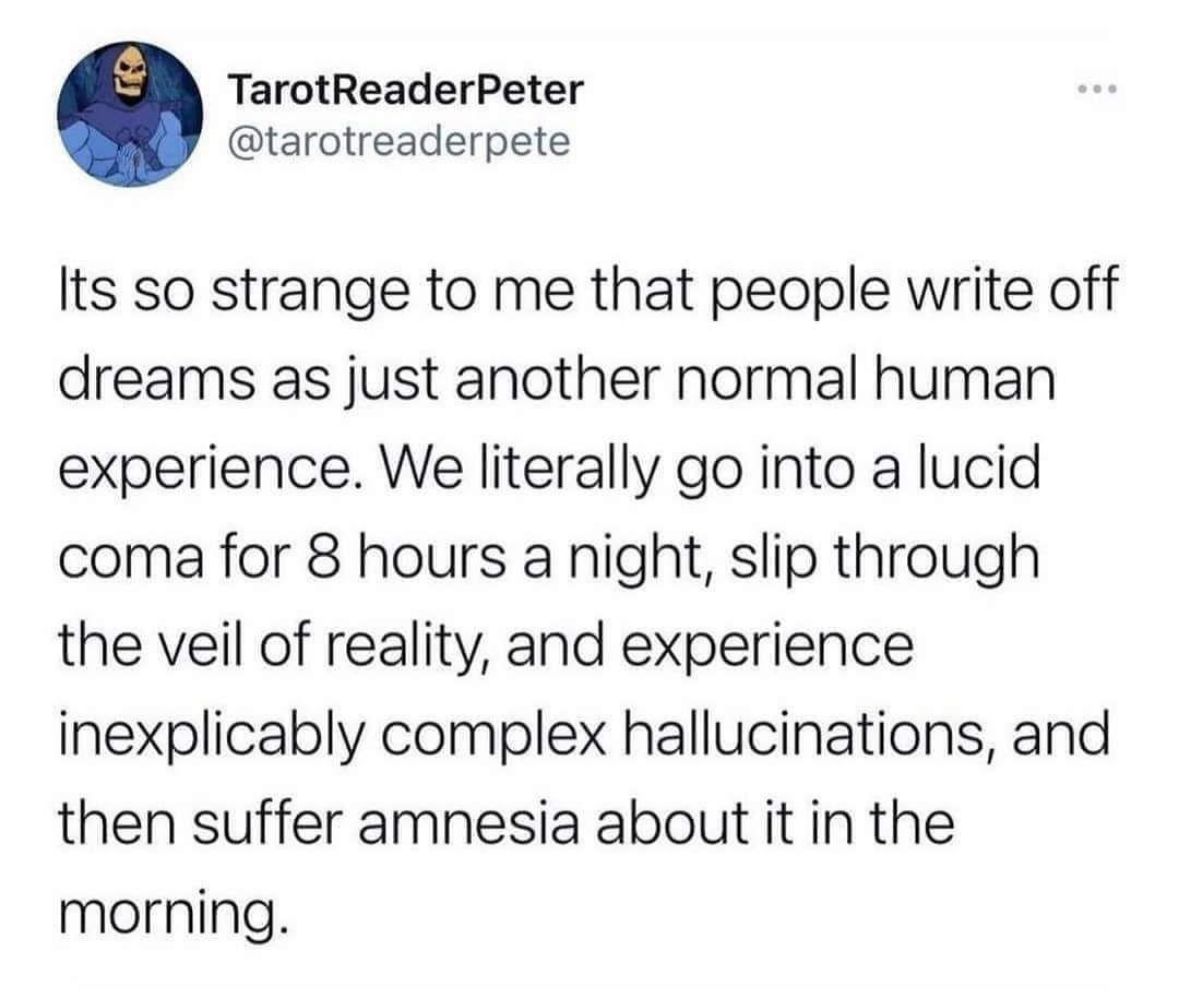this post was submitted on 25 Sep 2024
952 points (97.5% liked)
People Twitter
5447 readers
3835 users here now
People tweeting stuff. We allow tweets from anyone.
RULES:
- Mark NSFW content.
- No doxxing people.
- Must be a pic of the tweet or similar. No direct links to the tweet.
- No bullying or international politcs
- Be excellent to each other.
- Provide an archived link to the tweet (or similar) being shown if it's a major figure or a politician.
founded 2 years ago
MODERATORS
you are viewing a single comment's thread
view the rest of the comments
view the rest of the comments

Human memories are stored in flesh
Flesh has to be replaced constantly
When you sleep your memories are being copied and reallocated to new flesh, the things you experience in dreams are just a series of incredibly losely related themes and concepts. In general human memory searching relies on association of concepts rather than any sorted lists or some other silly inorganic solution.
That sounds cool, but I don't think it's strictly true.
Memories that have many pathways won't be lost due to a few broken pathways and are reinforced with further experience: learning or remembering.
Others are simply gone with neurons dying or the pathways getting severed.
Neurogenesis doesn't happen as much in adults, they're the longest living cells in our bodies - adult neurons last a lifetime
I boiled down the complex neurological system of organic memory in living beings down to a paragraph, of course there is room for a lot of nuance and sophistry.
Also: https://www.nature.com/articles/s41591-019-0375-9.epdf
I believe this to. Like ram being transfered to slower media but filtered, parsed, etc to keep the important parts.
I guess this goes here :
https://youtu.be/7tScAyNaRdQ?si=TXevA3dqx-9hyZ7u "They're made of meat"
That's more than a tad inaccurate.
Some tissues live a lot longer than others but as a general statement it holds true.
EDIT: https://www.nature.com/articles/s41591-019-0375-9.epdf